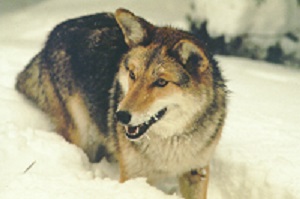
The Vermont Fish and Wildlife Department is holding public informational meetings about Eastern coyotes which the department says have become well-established throughout Vermont and other northeastern states.
“Eastern coyotes first appeared in Vermont in the 1940s after breeding with Eastern wolves in Canada,” said Mark Scott, Vermont’s director of wildlife. “They are larger than their western cousins, and they are adaptable opportunists, living in areas that are well-settled by humans as well as in remote wild areas.”
“Vermont’s coyotes now occupy a role as natural predators in our ecosystem, but they also have become highly controversial. We want to help people understand them from an objective, scientific perspective, and we want to help people learn how to live with them because they are here to stay.”
Vermont’s Furbearer Project Leader Kimberly Royar and Wildlife Ecologist Dr. David Person will hold the meetings as follows:
Tuesday, October 22 – 7:00 p.m. at the Weathersfield Conservation Commission, Weathersfield Community Center Road in Weathersfield.
Tuesday, December 17 -- 6:30 p.m. at the Barre Fish and Game Club, Gun Club Road, Barre.
During her 33 years with Vermont Fish and Wildlife, Kim Royar helped landowners improve wildlife habitat, she did extensive research on bobcats, coyotes and other furbearers, she worked to restore Vermont’s population of American martens, and she worked in Fish and Wildlife’s central office as a special assistant to the Commissioner.
Dr. Person did research on coyotes in Vermont for his UVM Master’s Degree as well as research on wolves, deer and predator-prey dynamics for 22 years in Alaska. He has authored more than 40 scientific journal papers, as well as reports on the ecology of coyotes, wolves, deer, flying squirrels, predator-prey theory, quantitative ecology, and subsistence hunting. University of Alaska students now carry on his research on wolves, deer, moose, caribou, subsistence hunting, habitat selection, predator-prey dynamics, and the effects of disturbance and global heating on ecological systems and the human use of those systems. He currently resides in Braintree, Vermont.
For Immediate Release: September 26, 2019
Media Contacts: Kimberly Royar 802-747-8412; Mark Scott 802-777-4217
